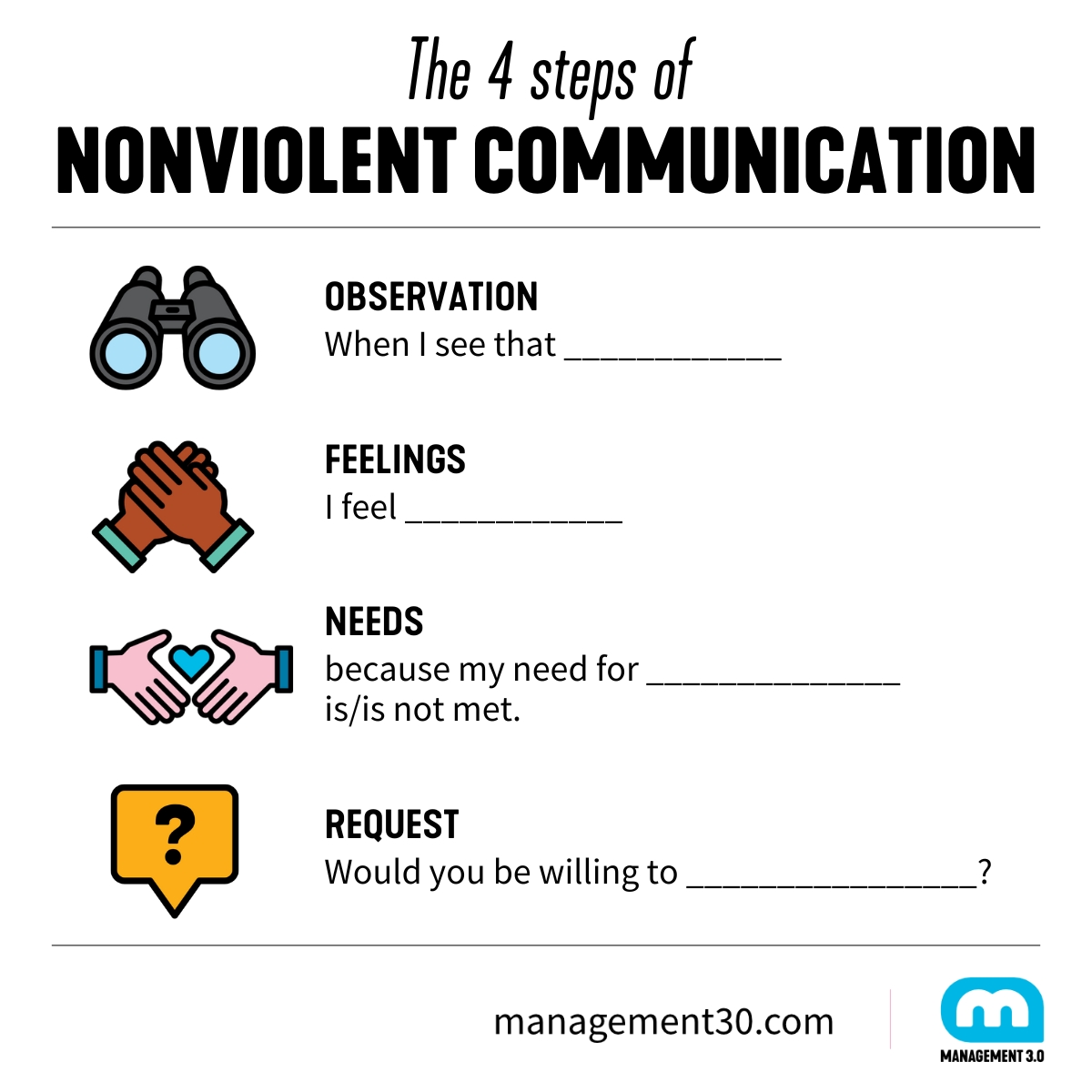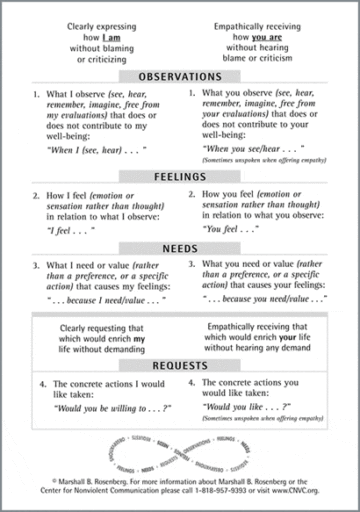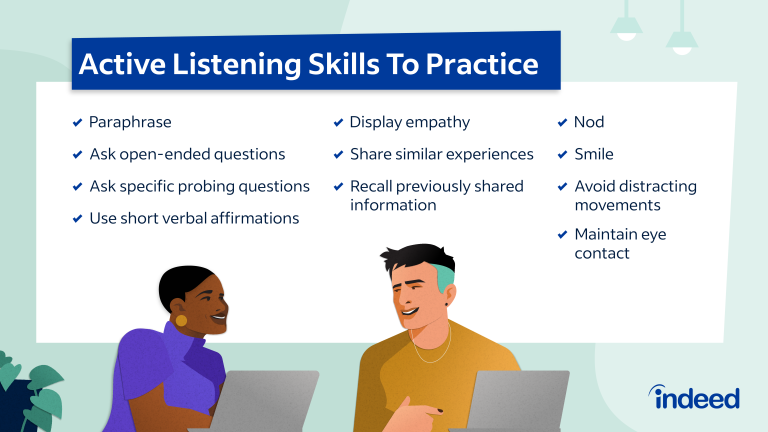Non Violent Communication In Relationships: Build Lasting Bonds
Nonviolent communication transforms how we interact. It focuses on empathy and understanding.
In relationships, this approach can be a game-changer. It helps partners express feelings without blame. Misunderstandings often lead to conflict in relationships. People might say hurtful things without meaning to. Nonviolent communication (NVC) offers a way to connect better. It teaches us to listen deeply and speak honestly.
This method fosters mutual respect and compassion. Couples can learn to express needs clearly. They can also understand each other’s emotions better. NVC is about building trust and a strong bond. It encourages open conversations. This approach can improve how couples relate. Embracing nonviolent communication can lead to healthier, more fulfilling relationships.
Principles Of Non-violent Communication
Non-Violent Communication enhances relationships by fostering empathy and understanding. It encourages expressing feelings and needs without blame. This approach strengthens connections and resolves conflicts peacefully.
### Principles of Non-Violent Communication Non-Violent Communication (NVC) is a powerful tool that can transform your relationships. It emphasizes understanding, expressing yourself honestly, and listening with empathy. These principles can help you connect deeply with your partner, friends, or family. It’s not just about avoiding harsh words; it’s about building bridges of understanding. ####Empathy As A Core Element
Empathy is the heart of NVC. It’s about genuinely understanding the feelings and needs of others. Imagine listening to your partner without judgment, truly focusing on their emotions. This can change the dynamics of your relationship. When was the last time you felt truly heard? When you practice empathy, you give others that gift. Empathy involves active listening. It’s not just about nodding; it’s about asking questions and seeking clarity. Next time your friend shares something important, try reflecting back what you’ve heard. You’ll notice the conversation becomes more meaningful. ####Honesty And Openness
Honesty in communication doesn’t mean bluntness. It’s about expressing your feelings and needs respectfully. Think about a moment when you held back your true feelings. How did it affect your relationship? Honesty is freeing. Openness requires vulnerability. Sharing your thoughts can feel risky, but it builds trust. Start by sharing small truths. You’ll find that honesty encourages others to be open too. What would happen if you were more open in your conversations? It’s worth considering. Embrace these principles to foster deeper connections and understanding in your relationships. How can you start applying NVC today?
Credit: www.epinsight.com
Transforming Conflict Into Connection
Transform conflict into connection through non-violent communication in relationships. This approach fosters understanding and empathy. It encourages expressing feelings without blame, creating a safe space for dialogue. Emphasizing needs and active listening builds stronger, more compassionate connections.
Transforming conflict into connection is a powerful aspect of non-violent communication in relationships. It’s about changing the way you and your partner interact during disagreements. Instead of allowing misunderstandings to drive a wedge between you, consider them as opportunities to deepen your bond. Imagine a scenario where a disagreement leads to a stronger, more understanding connection, rather than emotional distance. Wouldn’t that make conflicts less daunting and more constructive?Active Listening Techniques
Active listening is a cornerstone of transforming conflict into connection. It involves more than just hearing words; it’s about fully understanding your partner’s perspective. You can practice active listening by maintaining eye contact and nodding to show attentiveness. Reflect back what your partner says to confirm your understanding. Ask clarifying questions if needed, such as, “What do you mean by that?” This shows you value their thoughts and are truly engaged. How often do you find yourself thinking about what to say next instead of focusing on what’s being said?Expressing Needs Effectively
Expressing your needs clearly can prevent misunderstandings. Instead of saying, “You never listen to me,” try, “I feel unheard when I don’t get a response.” This shifts the focus from blame to expressing a personal need. Use “I” statements to communicate feelings and desires without accusing or criticizing. Be specific about what you need and why it’s important to you. For instance, saying, “I need some quiet time after work to recharge” can help your partner understand your behavior better. How often do your needs remain unspoken, leading to unnecessary tension? When you listen actively and express your needs clearly, conflicts can become opportunities for growth. They can bring you closer rather than push you apart. Imagine how your relationship could change with these simple, yet effective, communication strategies. Are you ready to turn your conflicts into connections?Building Trust And Understanding
Non-violent communication strengthens relationships by encouraging empathy and clear dialogue. It helps partners express feelings without blame. This method fosters trust and understanding, creating a supportive environment for both individuals.
Building trust and understanding in relationships is crucial for long-term happiness and connection. Non-violent communication (NVC) is a powerful tool that can help you achieve this by promoting empathy and honesty. Using NVC, you can create a solid foundation of trust and understanding with your partner, leading to healthier and more fulfilling relationships.Cultivating Mutual Respect
Respect is the backbone of any strong relationship. By practicing non-violent communication, you show respect for your partner’s feelings and needs. This involves listening actively and ensuring that you are truly present in conversations. Consider a time when you felt unheard. How did it impact your view of the person you were speaking with? By actively listening, you demonstrate that you value your partner’s perspective, which naturally cultivates mutual respect. Using “I” statements rather than “you” statements can prevent misunderstandings. Instead of saying, “You never listen to me,” try, “I feel overlooked when I’m not heard.” This subtle shift fosters respect and understanding.Fostering Emotional Safety
Emotional safety is essential for open and honest communication. Non-violent communication helps create an environment where both partners feel safe to express their emotions without fear of judgment or retaliation. Think about a moment when you felt safe to share your deepest thoughts. What made that possible? It likely involved an environment where your feelings were acknowledged and not dismissed. Encourage your partner to express their feelings by asking open-ended questions. Questions like, “How are you really feeling about this?” can open doors to deeper understanding. Your willingness to listen without interrupting or dismissing their emotions can transform the way you both connect. When emotional safety is established, trust naturally follows. You and your partner will feel more secure in sharing vulnerabilities, leading to a more profound and trusting relationship. Building trust and understanding isn’t a one-time event. It’s a continuous journey that requires effort and dedication. By implementing non-violent communication techniques, you can nurture a relationship where both partners feel valued and understood.
Credit: management30.com
Enhancing Emotional Intelligence
Non-violent communication nurtures emotional intelligence by fostering empathy and understanding in relationships. Express feelings and needs without blame. Encourages open dialogue, leading to deeper connection and trust.
Enhancing emotional intelligence plays a crucial role in nurturing healthy relationships. It involves understanding and managing emotions effectively. This approach fosters empathy and improves communication. Non-violent communication emphasizes emotional intelligence. It helps partners connect on a deeper level. This builds a strong foundation of trust and respect. By enhancing emotional intelligence, couples can resolve conflicts peacefully. They can strengthen their bond and create a harmonious environment.Identifying Emotional Triggers
Recognizing emotional triggers is essential for emotional growth. These triggers can cause intense reactions. They often stem from past experiences or unmet needs. Identifying them helps prevent misunderstandings. It enables individuals to communicate calmly. Knowing what sets off strong emotions allows for better control. This awareness reduces impulsive reactions. It opens the door to thoughtful communication.Responding Vs. Reacting
Responding requires conscious effort. It involves pausing before speaking. This thoughtful approach prevents escalation. Reacting is often impulsive. It can lead to negative outcomes. Responding means considering the impact of words. It helps maintain emotional balance. This distinction is vital for effective communication. Responding nurtures understanding and empathy. Reacting often fuels conflict and misunderstanding. Choosing to respond fosters healthier interactions. It encourages listening and thoughtful dialogue.Practices For Lasting Relationships
Non-violent communication fosters deeper connections in relationships. It emphasizes empathy, understanding, and honest expression of feelings. Couples can resolve conflicts peacefully, strengthening their bond and trust.
Building a lasting relationship requires more than just love and affection. It demands ongoing commitment and conscious communication. Nonviolent communication (NVC) can be a powerful tool to foster understanding and empathy between partners. By practicing NVC, you nurture a strong foundation that withstands challenges over time. Below are some practical practices you can implement to ensure your relationship thrives.Regular Check-ins And Communication
Regular check-ins are essential for maintaining a healthy relationship. Imagine sitting down with your partner every week to discuss your feelings and experiences. It’s a time to express any concerns and to listen actively to each other. These conversations should not be reserved for conflicts alone. Sharing everyday joys and struggles can strengthen your bond. Ask open-ended questions like, “How have you been feeling about our relationship this week?” Consistency is key here. Make these check-ins a priority, and they will become a comforting ritual.Celebrating Achievements Together
Celebrating each other’s achievements, no matter how small, can significantly boost your relationship. When your partner reaches a goal, join in their joy and acknowledge their effort. It’s not just about grand gestures; even a simple ‘Congratulations, I’m proud of you’ can make a difference. Reflect on past achievements and how you both celebrated them. Did you notice how it brought you closer? Recognizing success fosters a supportive environment where both partners feel valued and appreciated. Consider keeping a ‘celebration jar’. Write down every achievement, and when you need a reminder of your journey together, revisit these moments. How do you celebrate your partner’s success? What impact does it have on your relationship?
Credit: www.epinsight.com
Frequently Asked Questions
What Is An Example Of Nonviolent Communication In A Relationship?
An example of nonviolent communication in a relationship is expressing feelings without blame. Say, “I feel upset when you cancel plans. Can we discuss it? ” This approach fosters understanding and connection by focusing on emotions and needs rather than accusations, promoting a healthier and more empathetic dialogue.
What Are The 4 Types Of Communication In Relationships?
The four types of communication in relationships are verbal, non-verbal, written, and visual. Verbal includes spoken words, non-verbal involves body language, written comprises messages and letters, while visual uses images and symbols. Effective communication strengthens understanding and connection between partners.
What Are The 4 Principles Of Nonviolent Communication?
Nonviolent communication includes four principles: observing without judgment, expressing feelings, identifying needs, and making requests. These principles promote empathy and understanding, enhancing communication effectiveness. Use them to foster connection and resolve conflicts peacefully.
Conclusion
Nonviolent communication nurtures understanding and empathy in relationships. It encourages honest dialogue. Partners express feelings without fear. Respect grows. Conflict decreases. Trust strengthens. Simple words, clear intentions. Kindness leads the way. Listening matters. It deepens connections. Hearts open. Misunderstandings fade away.
Relationships thrive with patience and care. Small gestures make big differences. Everyone feels heard. Everyone feels valued. Practice makes progress. Each conversation builds a stronger bond. Choose words wisely. Foster harmony. Celebrate love. Nonviolent communication transforms interactions. Create a peaceful space.
Embrace compassion. It’s a journey worth taking. Every step counts. Keep moving forward together.



